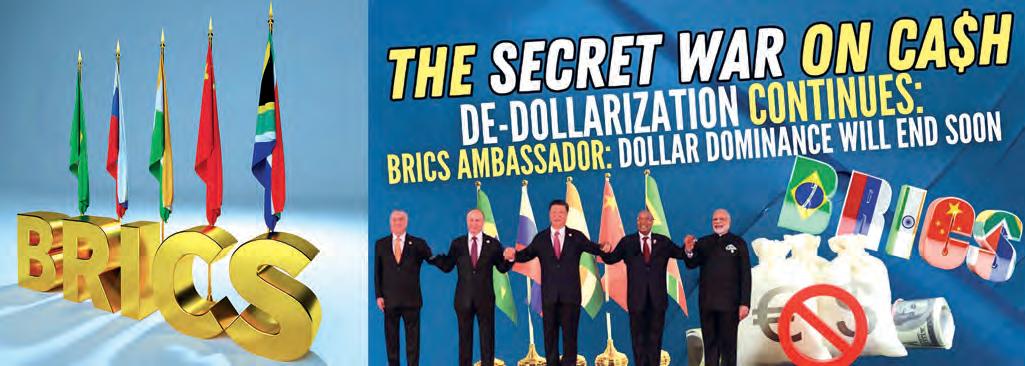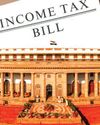
This trend could potentially lead to the collapse of world trade and a slowdown in global growth. But before delving further, it is essential for readers who may not follow international trade to understand BRICS. Here is a brief background:
Brief background of BRICS
The alliance of BRICS is built on a foundation of friendship, solidarity, and shared interests. BRICS represents over 42% of the global population, 30% of the world’s territory, 23% of global GDP, and 18% of global trade. After formalizing it as BRIC on June 16, 2009, the leaders held the first BRIC Summit in Yekaterinburg, Russia. In 2010, South Africa was invited to join, thus becoming BRICS.
Understanding how international trade relations are reshaping is crucial before examining how the US dollar’s dominance has impacted BRICS nations and why BRICS is leading the trend towards de-dollarization. This article concludes with an overview.
Reshaping of trade relations
On May 7, 2024, Gita Gopinath, the First Deputy Managing Director of the IMF, stated, “After years of shocks—including the COVID-19 pandemic and Russia’s invasion of Ukraine—countries are reevaluating their trading partners based on economic and national security concerns.”
The IMF observes that some countries are reconsidering their heavy dependence on the dollar for international transactions and reserve holdings. This shift indicates increasing polarization in trade relations, with nations moving away from globalization towards protectionism.
A World Bank study on global trade noted a slowdown, with only a marginal expansion in goods and services by 0.2% in 2023, marking the slowest pace in 50 years outside of global recessions. It further stated, “It would have declined outright but for the growth of trade in services.”
Denne historien er fra June 01 - 30, 2024-utgaven av BUSINESS ECONOMICS.
Start din 7-dagers gratis prøveperiode på Magzter GOLD for å få tilgang til tusenvis av utvalgte premiumhistorier og 9000+ magasiner og aviser.
Allerede abonnent ? Logg på
Denne historien er fra June 01 - 30, 2024-utgaven av BUSINESS ECONOMICS.
Start din 7-dagers gratis prøveperiode på Magzter GOLD for å få tilgang til tusenvis av utvalgte premiumhistorier og 9000+ magasiner og aviser.
Allerede abonnent? Logg på

"Spirituality is the search for the meaning of our existence and the purpose we serve."
In his insightful address, Ram Nath Kovind underscored the teachings of Paramhansa Ramakrishna, Maa Sarada, and Swami Vivekananda, emphasizing their vision of a world united by love and the boundless potential of the human spirit.

Some schemes welcomed, but real allocation declines
In the Annual Budget, the Finance Minister allocated ₹1.37 lakh crore to the Ministry of Agriculture and Farmers' Welfare, compared to ₹ 1.32 lakh crore in the previous budget.

Of Benchmarks & Benefits
Banks use various benchmark rates to determine loan pricing. Initially, they had complete discretion over interest rates, leading to the adoption of the Prime Lending Rate (PLR). This internally determined rate was applied to the bank’s most creditworthy customers, with additional risk premiums charged for borrowers deemed riskier. However, this system resulted in a wide disparity in interest rates among borrowers.

Sajjan Jindal, JSW Group Chairman receives 'Business Leader of the Decade' award
Sajjan Jindal, JSW Group Chairman, has been conferred with the coveted 'Business Leader of the Decade' honour at the 15th AIMA Managing India Awards, in recognition of his transformative leadership in expanding JSW Group into a global conglomerate.

India needs Development Finance Institutions: Bridging the Gap for MSMEs
India's economic landscape has long been driven by the dynamism of its micro, small, and medium enterprises (MSMEs), which play a crucial role in contributing to GDP and employment.

Rate cut to boost demand, says RBI Report
On February 19, 2025, the Reserve Bank of India (RBI) released its monthly bulletin, providing insights into the state of the economy.

INCOME TAX REFORMS
The new Income Tax Bill aims to streamline taxation by using simpler language and reducing the number of sections. Replacing the complex 1961 Act is a welcome move.

TACKLING INFLATION
India's retail inflation stood at 4.31 percent in January, marking a five-month low and a crucial moment in economic policy.

"Cultivating a global culture of wellness"
Dr. Robert M. Goldman: Dr. Robert Goldman explored the profound connection between science, spirituality, and medicine, emphasizing the importance of holistic longevity in shaping a healthier, more unified world.

Falta Special Economic Zone : it's contribution in the overall socio-economic development of the region
Falta Special Economic Zone (earlier Falta Export Processing Zone) was set up by the Department of Commerce, Government of India in 1984. The Zonal Office of Development Commissioner, Falta SEZ has jurisdiction over the 12 states of West Bengal, Odisha, Jharkhand, Bihar, Assam, Arunachal Pradesh, Manipur, Meghalaya, Mizoram, Nagaland, Tripura and Sikkim. BE spoke to Deen Bandhu Singh, Development Commissioner, Falta Special Economic Zone about the current scenario and the impact of the Falta SEZ. Falta Special Economic Zone (earlier Falta Export Processing Zone) was set up by the Department of Commerce, Government of India in 1984. The Zonal Office of Development Commissioner, Falta SEZ has jurisdiction over the 12 states of West Bengal, Odisha, Jharkhand, Bihar, Assam, Arunachal Pradesh, Manipur, Meghalaya, Mizoram, Nagaland, Tripura and Sikkim. BE spoke to Deen Bandhu Singh, Development Commissioner, Falta Special Economic Zone about the current scenario and the impact of the Falta SEZ.